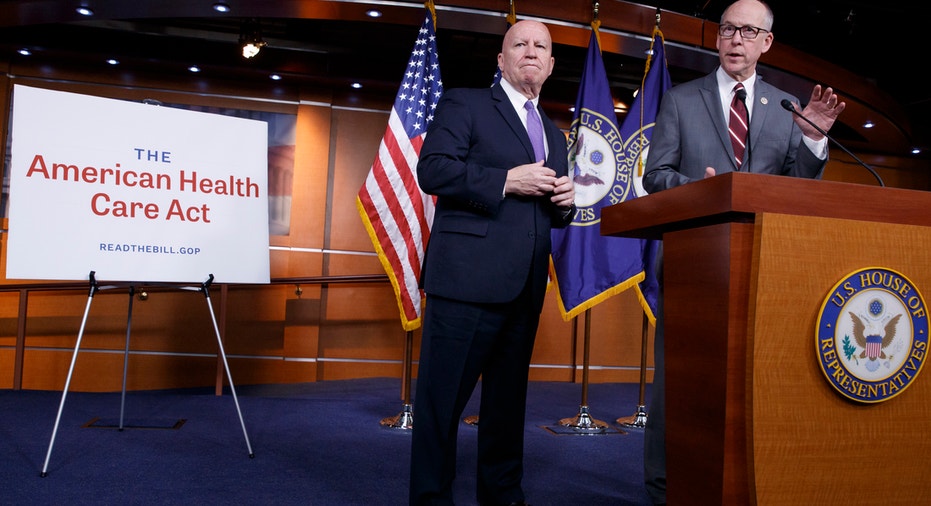CBO: House-approved health care bill to lower premiums, stabilize marketplace

The Congressional Budget Office said Wednesday the GOP’s revised effort to repeal and replace the Affordable Care Act will reduce the federal deficit by $119 billion and lower premium costs, but result in a loss of coverage for 23 million people over the course of the next decade.
The report predicts the overall number of uninsured Americans under the American Health Care Act in 2026 would clock in at 51 million, compared with an estimated 26 million under a continuation of the Affordable Care Act. However, a certain portion of those people would likely purchase plans using tax credits, the CBO expects.
When it comes to volatility in the marketplace, the agency forecasts the GOP bill would “bring stability in most states before 2020.” Lower average premiums are expected to be enough to attract the younger, healthy Americans who largely opted out of ObamaCare, something Republican lawmakers are proud of.
“This CBO report again confirms that the American Health Care Act achieves our mission: lowering premiums and lowering the deficit. It is another positive step toward keeping our promise to repeal and replace ObamaCare,” House Speaker Paul Ryan said in a statement Wednesday afternoon.
The initial health care bill, as scored by the CBO in March, would have shaved an estimated $337 billion off of the federal deficit while leaving 24 million additional individuals uninsured through 2026.
Democrats, however, were less pleased with the numbers, using the opportunity to mount a rallying call against the GOP-led effort.
“Today’s devastating CBO score hammers home TrumpCare’s dire consequences for working families and seniors across the country," House Minority Leader Nancy Pelosi said in a statement.
The biggest changes made to the bill took the form of the MacArthur and Upton Amendments, credited with garnering the support of conservative lawmakers belonging to the House Freedom Caucus. The former allows state governments to opt out of essential health benefits and pre-existing conditions coverage, so long as the state can prove that the exemptions will produce results meeting specified criteria. The Upton Amendment provides an extra $8 billion over 5 years to help cover costs of individuals with pre-existing conditions.
Democrats criticized what they viewed as the GOP’s effort to rush the American Health Care Act through the U.S. House of Representatives earlier this month, before it had been properly vetted by the CBO. The CBO’s original predictions contributed to the botched rollout of the initial bill, which was pulled before even reaching the House floor due to lack of support.



















